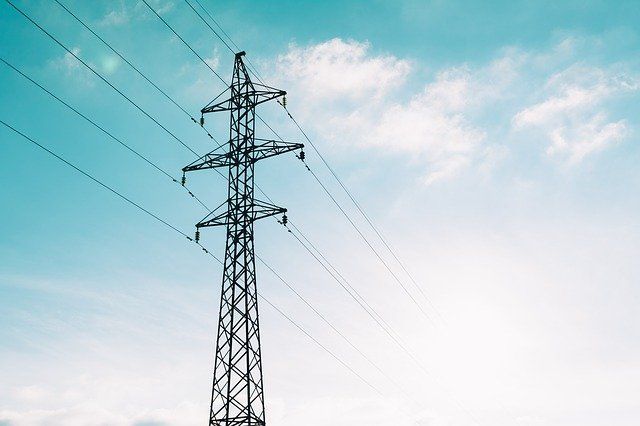Once the deeds are signed, you need to carry out a number of important tasks, some of which can be handled by your Real Estate Agengt with your confirmation. You can also use a gestor selected by the Notary, ensure you know how much it will cost in advance. If you’re taking a mortgage, your lender will insist that their gestor should be the one to pay the necessary taxes and inscribe the mortgage and title in the property register.
Immediate notification faxed to the land register
Once the deeds are signed, the Notary will fax a notification of the transaction to the lands register at the request of the buyer. This is so that no one else can inscribe the same property in the land register for the next 10 days.
Paying the taxes resulting from the purchase
You will only pay transfer tax known as ITP (Impuesto sobre Transmisiones Patrimoniales) when you purchase a resale property. It comes along with another tax called IAJD (Impuesto de Actos Jurídicos Documentados), which you will often hear referred to as stamp duty. For knowing more about taxes visit Taxes when buying a property in Spain
All taxes must be paid at the authorised bank within 30 working days of the signing of the deeds. Before the title of the property can be inscribed in the property register, you will need to provide proof that you’ve paid all the taxes. You will need your NIE number, the appropriate form, and the copia simple to pay any tax. The bank will then notify the regional tax office (Delegación de Hacienda de la Comunidad Autónoma).

Should you have purchased the property from a non-resident, then you will also have 30 days to pay the tax retention that you’ve withheld from the seller and this should be done via authorised banks. You will need to provide proof of this payment before any inscribing can be done. You are also required to share this proof with the seller and their solicitor since failure to do so will make it impossible for them to claim back any tax if it was greater than their obligation.
If you have agreed to pay the plusvalía then this has to be paid to the town hall within 30 days of the sale. Once again you pay this via a bank, but will need to visit the town hall first, and maybe even afterwards with proof of payment.
Inscribing your title in the property register (Registro de la Propiedad)
You are free to inscribe your title in the property register at the property registry office after paying ITP. While the law does not require you to inscribe, there are advantages related to it such as You will be considered as the only true owner of the property.
- You will be protected from the seller’s creditors
- No one else can register a claim on the property without your consent.
- You will now be able to acquire loans against the property.
The earlier you do the inscription of the property title at the land register, the more advantageous it is for you
To inscribe your title in the property register you will need the following:
- The original deeds (copia autorizada).
- Receipt to prove that ITP has been paid.
- Copy of the vendor’s latest IBI receipt.
- Photocopy of your identity document.
- NIE number (or NIF number in some cases).
The process of inscribing your title will be complete within 15 days after which you can collect the deeds (copia autorizada). Should process of inscription fail, you will be informed on time and informed of what you need to do so that it can be redone correctly.
Updating the Land Registry
You must inform the Cadastre that you’re ne new owner of the property within 2 months of signing the deeds. Fail to do this and the town hall will not be able to collect municipal rates (IBI), and your will fall into interests and even an embargo when you fall behind payments.
The best place to update the cadastre is at the town hall. Carry with you a copy of the deed, a copy of your identity card and your NIE number. Also, give the cadastre your correspondence address if it’s different from that of the property and your bank account details so that you can pay by standing order.
Setting up utility contracts or changing the previous owner’s contracts
After taking possession of the property, proceed to sort out contracts with utility companies i.e water, electricity, telephone and gas. Ensure that you have two options when sorting the utilities.

The simplest and cheapest option is to take over the sellers contracts, in so doing, you save money since you won’t have to set up new contracts. To so this, you need recent copies of each contract from the seller and then you will get in touch with the utility company with all the details and inform them of the change by giving them details like name, address, NIE number and bank details. . It is usually possible to provide a correspondence address in the UK if that is where you wish to have the bills sent to. You can also carry out these changes by visiting the nearest consumer services office of each utility company, or in some cases online.
Most utility companies charge bi-monthly or monthly. Each company has a different process for setting up contracts which start with you submitting an application online or making a call or visiting their offices.
You will be required to provide your name, NIE number, address of the property, bank account details and a copia sample of the deeds.
- If the contracts are for a newly built property, you will be required to provide a first occupancy licence (licencia de primera ocupación).
- For a resale property that’s already been receiving utility bills, producing the occupancy license is not necessary.
It’s always a good idea to have several photocopies of your passport when dealing with the utility companies as they may ask for this. When you set up new contracts someone may have to come round to read the meter, and you may be charged anything from 50 to 100 Euros for setting up each new contract.
It will be difficult dealing with utility companies if you don’t speak Spanish. It’s recommended that you engage the services of a gestor of property Management Company to make the changes for you.
Community of owners
If the property you’ve purchased is part of a community of owners, provide the administrator with your bank account details so that you can be charged your community fees and take part in the management process if you’re interested.







